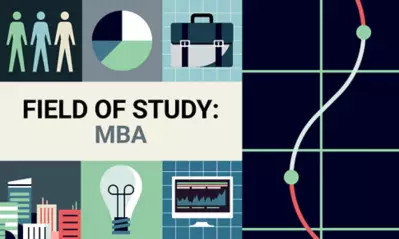What’s the difference between accountancy and accounting?
This article was updated on May 14, 2024.

Kathryn Uhles, MSP, MIS, Dean, College of Business and Information Technology

If you are interested in an accounting, bookkeeping, management or finance career, or if you have already begun your education in one of these fields of study, you have likely come across two related but distinct terms: accounting and accountancy.
Many people use the terms interchangeably, but there are some important differences you should be aware of, especially if you plan to pursue a career in accounting.
In broad terms, accountancy covers the principles that guide the creation and use of financial records.
Accounting, on the other hand, refers to the process of maintaining those records. Accountancy can cover such areas as forecasting, budget planning and cost analysis, which are important concepts for those who want to be executives and business managers someday.
We spoke with Natalie Pratt, MEd, MC, MBA, associate dean of the College of Business and Information Technology at University of Phoenix, about accounting and accountancy:
“Accounting and accountancy impact so many roles within business, but their applications aren’t constrained to just the one field. In fact, those well versed in these concepts can bring value to healthcare administration, operations management, business analysis and project management.”
Here is a closer look at accounting and accountancy and their relevance to business professionals.
What is accountancy?
Accountancy focuses on the principles for gathering and using financial data. It gives accounting a framework and practices that accountants can use to identify, collect, record and report financial information. Other related professions, such as bookkeeping, also fall under the broad umbrella of accountancy.
Additionally, accountancy involves the analysis of financial activity using accounting data. If you work as a business manager, you need to know about accountancy. If you become a business manager, you will use specific principles in the field of accountancy to make informed decisions based on financial reports and data collected by bookkeepers and overseen by accountants.
What is accounting?
The simplest definition of accounting is the act of recording financial transactions, typically for business purposes. Accountants — the people who do the work of accounting — record financial transactions, summarize them and analyze the results. They also must report those transactions to financial regulators and tax collection agencies.
Types of accounting
You will learn the fundamentals of accounting during an undergraduate degree program. That said, accountants might focus on one or more careers in accounting. As you think about your career prospects, remember that accounting has multiple avenues to consider:
- Financial accounting is the most familiar type of accounting for most people. It involves recording monetary transactions and data and creating reports, such as income and cash flow statements.
- Public accounting is a specialty in which an accountant or accounting firm provides services to individuals or companies as a third party. A public accountant can provide a variety of services, such as payroll, tax preparation, auditing and income statement preparations.
- Cost accounting involves calculating the overall cost of an operation for a company. For example, an accountant could add up the total fixed and variable costs for the production of a single product to help company decision-makers and marketers settle on a reasonable price.
- Management accounting involves creating reports and performing audits to help inform the strategic choices of executives and other decision-makers.
- Tax accounting involves the preparation of tax documents. A tax accountant makes sure that a company’s or individual’s tax filings meet all IRS regulations. A tax accountant also ensures their employer or clients get all the deductions and credits they are due.
- Auditing is an accounting practice that involves looking at financial records to ensure that they are accurate and comply with regulations.
Large companies or accounting firms may have specialist accountants who focus on specific areas, while other employers will hire generalists who can work on different types of accounting.
Comparing accountancy vs. accounting
Accountancy principles are useful for accountants, but you cannot get a degree in accountancy. While pursuing a bachelor’s degree in accounting, you can also study business management, finance and bookkeeping, which are fields that use the principles of accountancy. The distinct differences between the two can be summed up as follows:
- Accounting focuses on specific processes for recording transactions and creating reports. Accountancy concentrates on broader principles without getting into detailed specifics.
- Accounting focuses on collecting and reporting, while accountancy includes many other areas, such as forecasting, auditing, bookkeeping and financial decision-making.
- Accounting concentrates on the calculations needed in creating required statements and documents, while accountancy focuses on the broader regulations, ethics and principles behind these technical processes.
Despite these differences, accounting students will become intimately familiar with the principles of accountancy during their undergraduate studies and in their careers.
“The Bachelor of Science in Accounting degree (BSACC) equips students with the necessary financial expertise to enhance organizational efficiency,” Pratt says. “By developing specialized skills in managerial accounting, estate taxation, advanced accounting research, and more, students are able to channel a passion for numbers into a rewarding career as an accounting professional.”
Study accounting at UOPX
Ultimately, a successful accounting career requires you to have a keen understanding of the actual day-to-day processes of accounting — the how — as well as why that makes up accountancy principles. As you consider programs to jump-start your career as an accountant, seek out those that can provide a solid foundation in both.
Whether you’re seeking a complete job change or are a working accounting professional who wants to level up your skill set and move on to the next stage of your career, University of Phoenix’s online bachelor’s in accounting program provides the tools and resources you can use to make that shift. Request more information about our online degree programs, including accounting, today.

ABOUT THE AUTHOR
A graduate of Johns Hopkins University and its Writing Seminars program and winner of the Stephen A. Dixon Literary Prize, Michael Feder brings an eye for detail and a passion for research to every article he writes. His academic and professional background includes experience in marketing, content development, script writing and SEO. Today, he works as a multimedia specialist at University of Phoenix where he covers a variety of topics ranging from healthcare to IT.

ABOUT THE REVIEWER
Currently Dean of the College of Business and Information Technology, Kathryn Uhles has served University of Phoenix in a variety of roles since 2006. Prior to joining University of Phoenix, Kathryn taught fifth grade to underprivileged youth in Phoenix.
Kanban vs Scrum: 7 Key Differences and Similarities - UOPX
Online Degrees
May 31, 2023 • 6 minute read




